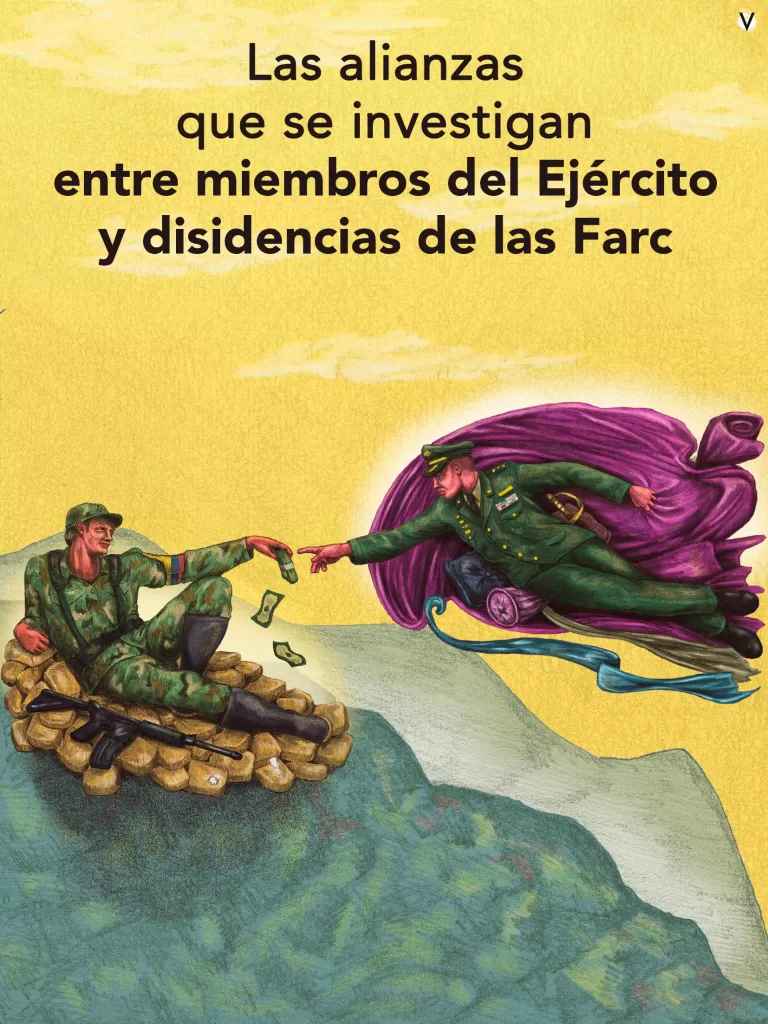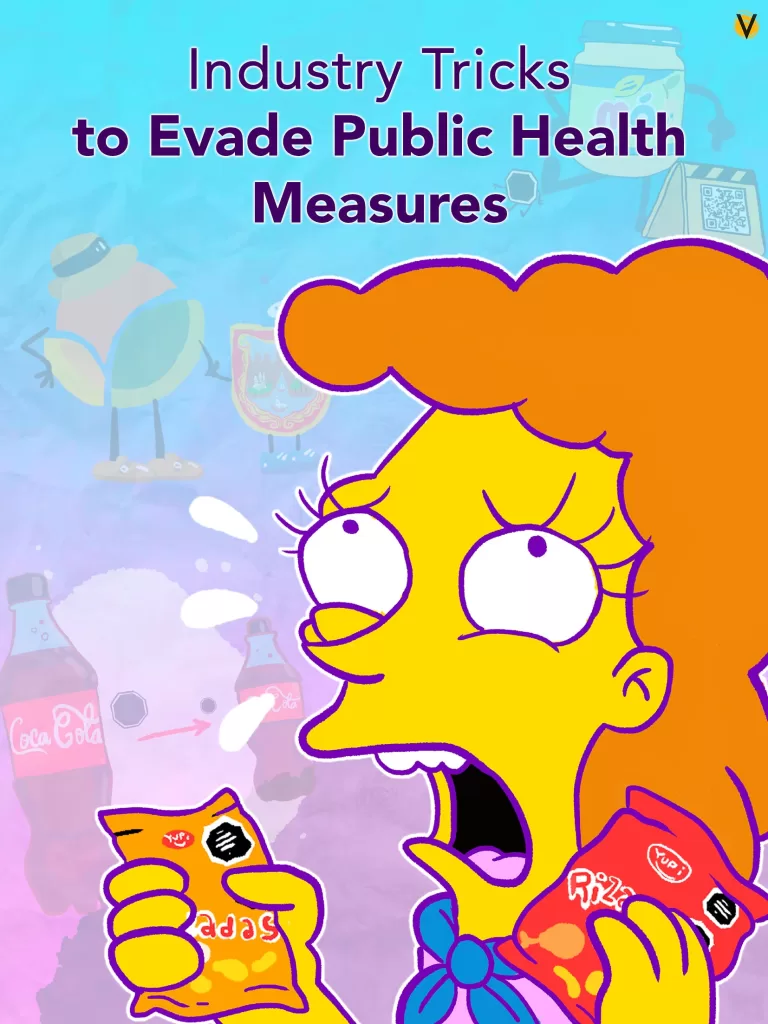Coca-Cola and the ANDI: The International Lobby to Continue Producing Plastic
29 de septiembre de 2025
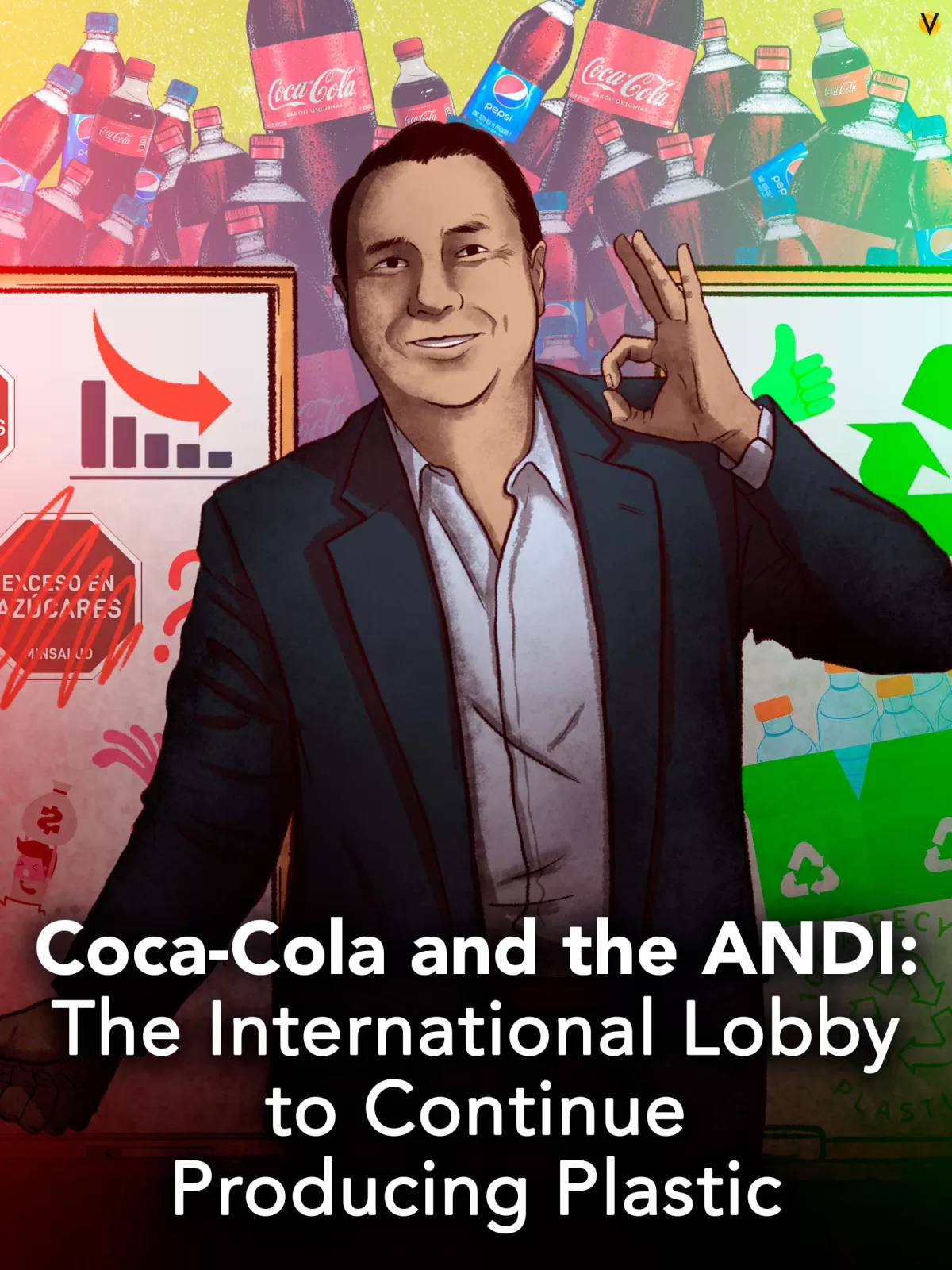
An increasing number of studies have researched the negative consequences of microplastics on living beings. Particles of this material have been found in placentas, vital organs, and animals as small and crucial as bees. For this reason, various sectors have argued the urgent need for a treaty to limit plastic production as much as possible. The goal, however, has been thwarted by powerful industries that have made billions of dollars from the sale of this material.
The International Council of Beverage Associations is a little-known organization in Colombia, but one that wields great power by uniting with influential companies like Coca-Cola and Pepsi. Its director in Latin America is Santiago López Jaramillo, a native of Ibagué who worked for five years at the Association of Industrialists of Colombia (ANDI). His social networks reflect his ability to lobby in favor of these industries: for example, he was in Geneva (Switzerland) during negotiations on a UN-sponsored plastics treaty that would be binding on States.
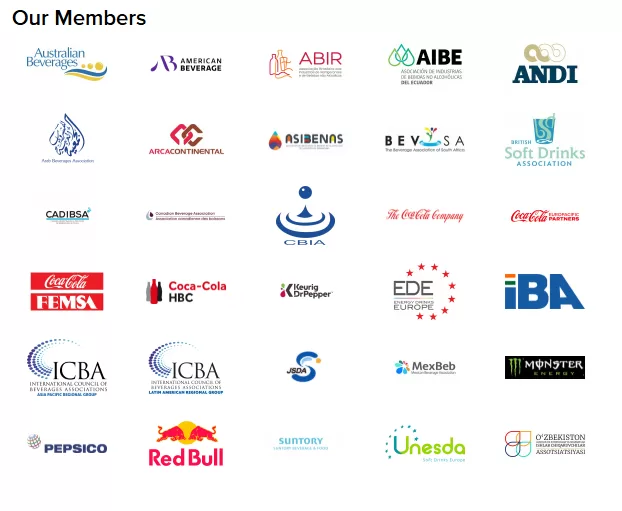
ICBA members, including members of trade associations such as the ANDI and sugary beverage companies.
In one of the photographs that Lopez uploaded to Twitter, the lobbyist boasted of a meeting with congressman Juan Carlos Losada, the author of the law banning single-use plastics in Colombia. We spoke with the congressman, who attended the event as an observer, about the events surrounding this conversation, and he clarified that they met by chance.
“Santiago López and I didn’t have a meeting; we ran into each other at the United Nations headquarters in Geneva. He was my college classmate,” Losada explained. He also stated that during the conversation, he criticized the lobbyist for the positions that companies like Coca-Cola and Pepsi were taking in the discussion. “Brands seem to constantly say, ‘We want an ambitious treaty;’ meanwhile, the country where their industries operate is the one that kills the treaty. They’re playing at making themselves look good, while others do the dirty work,” he explained.
Revealing Details
Evidence of Losada’s claims can be found in López’s Twitter posts. “The beverage industry, both globally and in Latin America and the Caribbean, remains firmly committed to moving toward a more fair, resilient, and circular model,” the lobbyist said in a tweet regarding the plastic treaty negotiations.
The industry is careful with its public messaging, so it’s essential to pay attention to the details: for example, they avoid mentioning plastic production reduction. The “circular model” they mention refers, above all, to the implementation of recycling. In the ICBA’s response to a questionnaire about its participation as an observer in the plastics treaty negotiations they failed to mention a reduction in production and instead proposed “recycling,” “addressing all aspects of plastic pollution,” and “allowing the instrument to evolve and strengthen over time.”
On the other side of the discussion are environmental organizations, several states (including Colombia), and Losada himself, who argue that a stop to the production of unnecessary plastics is urgent. “The plastic pollution crisis is not only a matter of solid waste management, but a structural problem of overproduction that, according to scientific evidence, has reached unsustainable levels, mostly for unnecessary products that exacerbate the climate crisis,” the Ministry of the Environment told VORÁGINE in response to a questionnaire.
Losada pointed out the non-viability of continuing plastic production in current quantities with only a commitment to recycling. “It has been more than proven that recycling is not the way. Only 9% of the plastics on the planet placed on the market have been recycled; another 13% have been incinerated. That is, 78% of plastics have not been recycled and have become microplastics that pose a serious risk to human health,” he said.
Regarding López’s tweets about the plastics treaty negotiations, Losada said: “Everything that thread says is absolutely false. They’ve never been interested in anything good at all, they have a business to take care of, period. That’s what they do.” And he added: “They ‘greenwash’ to show that their industry cares about the environment, which is the primary cause of plastic pollution on the planet.”
And the ICBA membership, which includes Coca-Cola and Pepsi, is a clear statement of its interests. “The companies that pollute the most with plastics in the world are North American: the first is Coca-Cola and the second is Pepsi-Cola,” Losada emphasized. According to figures from the Colombian Ministry of the Environment, 316,450 tons of beverage bottles were produced in 2020. The ICBA’s connection to Colombia comes from its membership in ANDI, where López worked between 2012 and 2017.
Placing the Responsibility on Citizens
Another criticized strategy, one that the industry has implemented for decades, is shifting the responsibility for plastic pollution onto citizens. In an interview that López gave to Blu Radio in October 2024, while attending COP16, he stated the following: “What’s going on? If citizens don’t separate at the source, if in our own homes we don’t facilitate the circular economy by ensuring plastic products are disposed of properly, the cycle can’t be completed.”
“Why should citizens be responsible for recycling packaging produced by the industry?” Adriana Torres, coordinator of Economic Justice at the NGO Dejusticia, told VORÁGINE. “First and foremost, it is the producers and marketers who are responsible for this,” Losada said.
The plastics treaty negotiations in Geneva ended in a stalemate. Losada and various reports from media such as Spain’s El País newspaper state that several countries blocked the agreement. The congressman singles out the United States, Saudi Arabia, and Qatar as three of the main opponents of a treaty that includes reducing plastic production. At the Latin American level, he affirmed that Brazil has taken a very “lukewarm” stance on the issue. In contrast, he praised the work of President Gustavo Petro’s government, whose delegation criticized the lack of willingness of other states to move forward with substantive solutions.
The opposition of some states is explained by their dependence on oil. “Plastic is the fossil fuel industry’s ‘Plan B’: by 2050, it is estimated that 50% of global oil demand will be allocated to its production, becoming the escape valve for the energy transition,” the Ministry of the Environment stated in their response to the VORÁGINE questionnaire. The rise of electric cars has led oil-producing countries to seek new lines of business, and the strongest is plastics.
Soft Drinks: The Other Side of the Lobby
Another of the lobbying efforts by the ICBA and López focuses on sugary drinks. López is experienced in lobbying on the subject after five years as director of the ANDI Beverage Chamber. In 2016, when the possibility of taxing sugary drinks was beginning to be discussed, López strove to make public the position of the companies that profit from these products. In an interview with the Nuevo Día newspaper, he was asked about the supposed “effects” of these taxes: “Poor people, such as consumers of juices, sodas, teas, and malt beverages, will have to allocate more of their financial resources to purchasing these beverages.”
Taxing sugary drinks was not a government whim. A 2016 Ministry of Health bulletin noted the risks these products pose to consumers’ health: “In 2015, approximately 3,200 people died from diabetes, cardiovascular disease, and some type of cancer attributable to the consumption of sugary drinks. “6.8% of all deaths in Colombia are related to cerebrovascular diseases and 5.0% of that figure is attributable to sugary drinks.
By then, the industry had overridden public health measures and sugary drinks were finally exempt from taxes. The then Minister of Health, Alejandro Gaviria, made clear the reason why the tax was defeated: “In short, the lobby won and public health lost.”
Campaign financing, political parties, and industry lobbying efforts repeatedly thwarted the possibility of imposing these taxes. The siege was broken in 2022, when President Gustavo Petro’s government included the measure in a tax reform. By that time, López, who had already moved from the ANDI to the ICBA, gave an interview in Portfolio in which he said: “One might say that, on this front, Latin America and the Caribbean are spearheading regulatory proposals and public policies whose cost-effectiveness remains uncertain.”
And although the measure became law, the sugary beverage industry achieved some success through lobbying. La Silla Vacía documented how several congressmen asked the government to increase the sugar content allowed before having to pay the tax. The changes, included in the tax reform, allowed products such as Manzana Postobón and Coca-Cola’s Sprite to be excluded from taxes.
Dejusticia’s Torres pointed out the imbalances that exist between civil society and industry lobbyists such as the ANDI or the ICBA. “When the health tax was discussed, civil society met with advisors from the Ministry of Finance, while the industry met with the minister,” she said.
Regarding the profile of industry lobbyists, Torres stated: “They are usually people with social and economic profiles that open many more doors for them than those accesible to civil society. These forms of transnational lobbying open up much more direct, and less transparent, access to decision-makers,” she added. In the questionnaire we sent to the ICBA, we asked which congressmen their representatives had met with to discuss plastics and sugary drinks, but they evaded the question.
The profile of López, who graduated from San Bonifacio de las Lanzas School in the exclusive El Vergel neighborhood of Ibagué, can be found on the ICBA website and describes the scope of his efforts. It states that López “collaborates” with organizations such as Mercosur, the Organization of American States (OAS), and the Pan American Health Organization. We requested an interview with the lobbyist on Twitter, but he asked us to send the questionnaire directly to the ICBA.
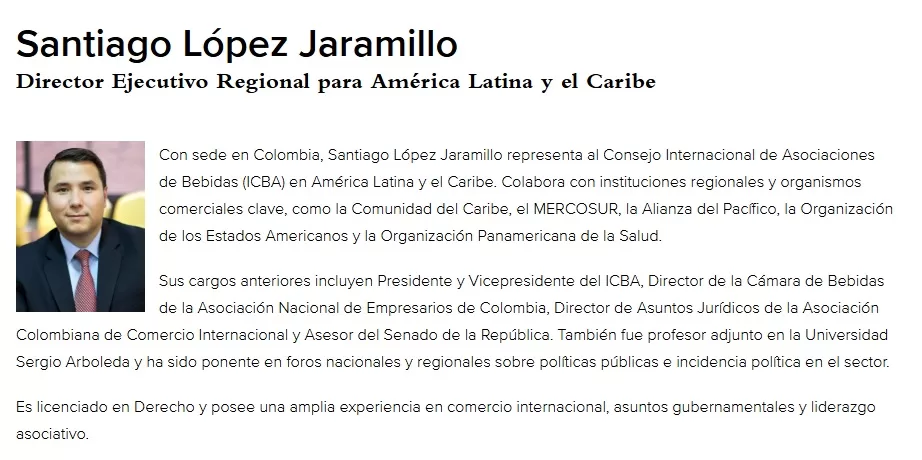
“Industry should not be involved in public health policies; that should be absolutely prohibited. These policies must be based on the best scientific evidence, free of conflicts of interest,” said Juan Camilo Mesa, nutritionist-dietician and industrial microbiologist. For its part, the ICBA defended its influence in decision-making spaces: “Regarding consultation on important issues such as the environment, public health, and others, we firmly believe that inclusion and consultation with the private sector during the development of standards and policies generate concrete benefits,” they stated in response to the questionnaire sent by VORÁGINE. The ICBA claims their participation can provide “practical insights,” “risk mitigation,” “implementation improvements,” and “build trust and legitimacy.”
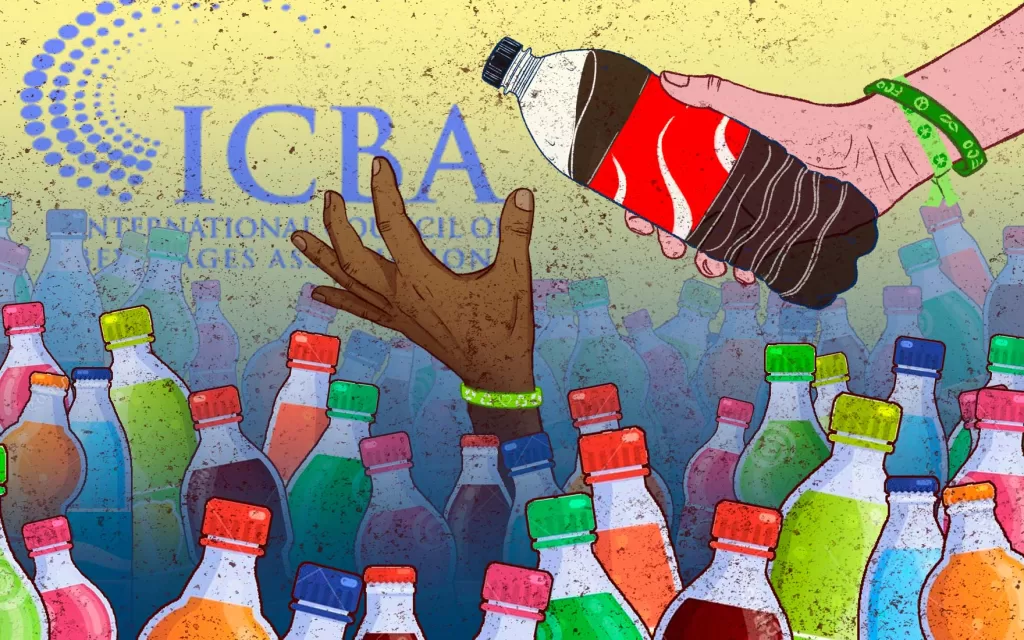
The Lobby Against Future Measures
The ICBA website reveals the focus of the organization’s lobby, which operates in Latin America, the Caribbean, Asia, and Africa. A statement signed by Kate Loatman, executive director of the ICBA, reads: “It is deeply concerning that the World Health Organization (WHO) continues to ignore more than a decade of clear evidence showing that taxing sugary drinks has never improved health outcomes or reduced obesity in any country.”
This document is a response to a proposal published by the WHO in July 2025, which proposed taxing the tobacco, alcohol, and sugary beverage industries between 2025 and 2035 with taxes that would increase the sales price of these products by 50%. “A recent report shows that a one-time 50% increase in the price of these products could prevent 50 million premature deaths over the next 50 years,” the multilateral organization highlights.
A study published in the scientific journal Nature Medicine clarified the impacts of sugary drinks on health. According to the document, in 2020, the appearance of 2.2 cases of diabetes and 1.2 cases of cardiovascular disease were associated with the consumption of sugary drinks.
At the local level, Torres highlighted two initiatives currently being promoted: the removal of ultra-processed products and sugary drinks from school stores; and restricting advertising of these items to children and adolescents. Unicef has made public their concern given that 188 million children and adolescents suffer from obesity. “The obesity rate has increased from 3% to 9.4%.” Among the measures suggested by the UN agency are taxes, marketing restrictions, and front-of-package warning labels. The ANDI has opposed all of the public health measures outlined in this paragraph.
For his part, Losada said he will propose a bill to require that companies produce 50% of their bottles with recycled plastic. Furthermore, in the tax reform that the Petro administration plans to present to Congress, it will seek to include more taxes on imports of virgin plastic resin. Both measures are certain to unleash industry lobbying.
Plastic continues to flood the world. Non-communicable diseases claim the lives of millions of people every year. Sectors of civil society have focused their efforts on these issues, but they face an industry that is unrelenting in its accumulation of wealth.
* This investigation was funded, in part, by Vital Strategies. The content is editorially independent and is intended to shine a light on illegal or unethical practices in the food and beverage industry and on the fact that it is the most vulnerable populations who disproportionately bear the brunt of the health crisis caused by the consumption of unhealthy food and beverages. Unless otherwise noted, all statements published in this story, including those regarding specific legislation, reflect the views of the particular organizations, and not of Vital Strategies.



